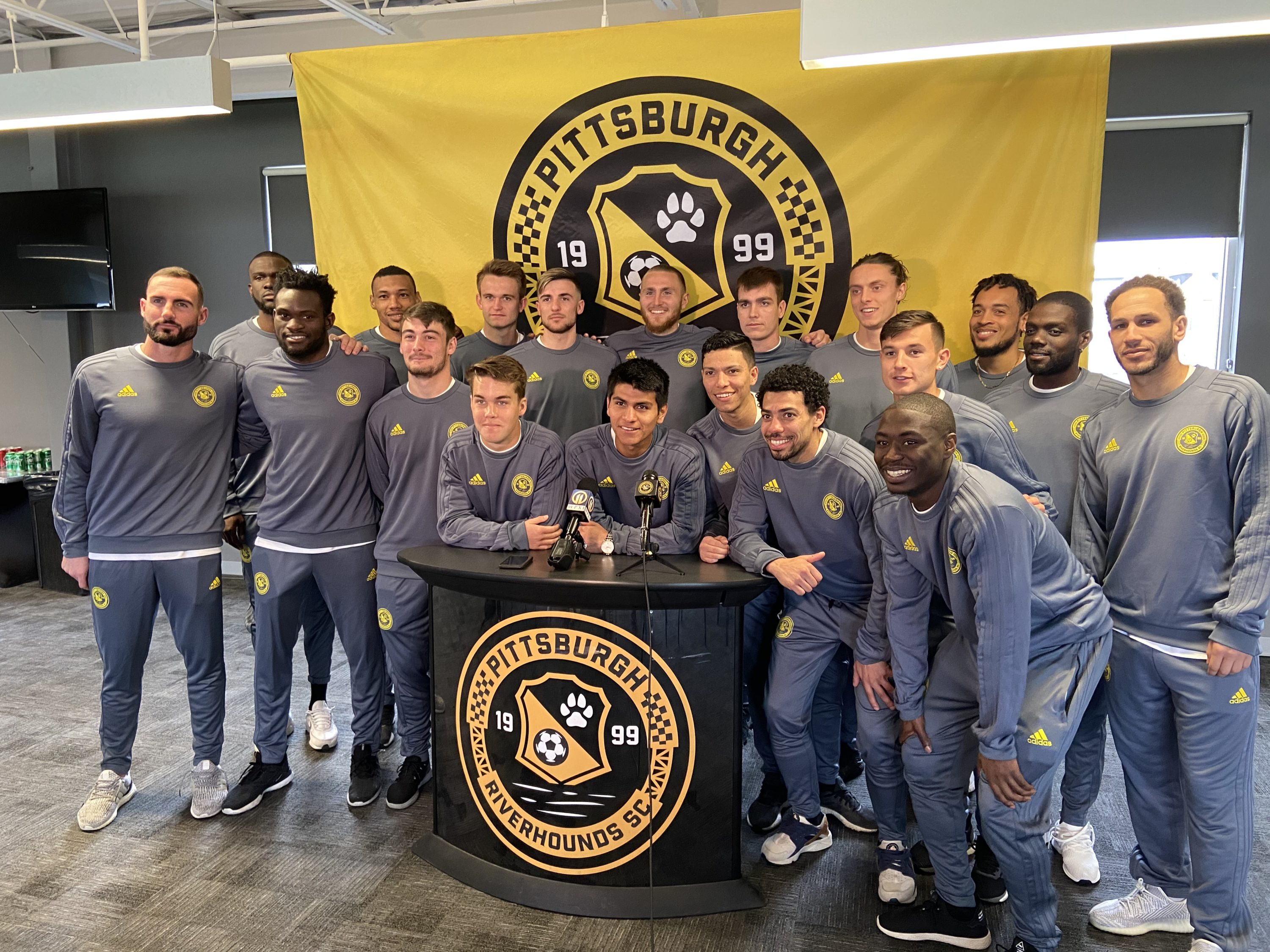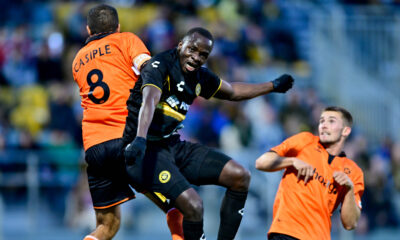
Slowly but surely, soccer is coming back in the United States.
After more than four months of quarantine and inactivity, uncertain futures and players union negotiations, the NWSL, MLS, and USL are all returning to action in less than three weeks.
The first league back will be NWSL, playing a 9-team tournament called the ‘Challenge Cup.’ The tourney was announced back in May, and is set to begin this Saturday, June 27. The eyes of the US soccer world will be trained on Utah to see how things go.
Coming soooooon…and we can’t wait to watch our members in Utah! What NWSL player are you most excited to see play? pic.twitter.com/JrOHHQEswY
— NWSLPA (@nwsl_players) June 13, 2020
However, things have already hit a snag, as today the Orlando Pride announced that 10 of their players and staff had tested positive for Covid-19. All 10 had been asymptomatic. As a result, the Pride have withdrawn from the tournament. The Athletic’s Meg Linehan reports that the positive tests may be the result of team members meeting up at a bar in Orlando. Florida is one of the US states hit hardest by the Coronavirus, and has seen a sharp increase in cases over the last 14 days. So it’s now an 8-team tournament.
The withdrawal simultaneously demonstrates the strengths and weaknesses of returning to soccer with the stringent protocols in place. On the one hand, sequestering players, demanding careful attention to strict surface-cleaning, hand-sanitizing, and masking, and creating a robust testing regimen demonstrates thought and care on the part of sports leagues in trying to stamp out the disease and protect player health. The world said ‘we want soccer, but we want it to be safe’, and leagues responded with a plan crafted under the advisement of medical professionals. The stringent protocols include increased testing, and increased testing will inevitably reveal positive results. This is, mostly, a good thing.
On the other hand, soccer is still a sport. Players breathe heavily. They come into close contact. They sweat and shout and spit. It may be categorically impossible to make it truly safe from Covid-19 transmission. The players are not forced to play; many are excited to return to the pitch. Others, like USWNT stars Megan Rapinoe, Christen Press, and Tobin Heath have decided it would be best to forgo the risk.
All this leads to the central weaknesses of the protocols – they may not be enough, and they ignore the underlying question of whether a return to team sports is prudent or advisable at all. While a return to play has taken place in Germany, they’ve managed Covid-19 far more effectively than the United States has. From a high of 6,294 new cases reported on March 28, they’ve gotten the outbreak down to 537 new cases as of June 20. In the US, the high in new cases occurred on April 24 when the country recorded 36,729 new cases. On June 20, we had 30,451 new cases, and that number is climbing every day. We’re reopening soccer, but with no real clear indication that the move is a prudent one.
Major League Soccer will be the next league to reopen. They’ve announced the ‘MLS is Back’ tournament, set to begin on July 8 at the ESPN Wide World of Sports Complex. Which is located in Orlando. Which is in Florida.
USL teams will restart on July 11 with regular league play.
The USL Championship and the USL Players Association have reached a formal agreement on a return to play for the 2020 season. pic.twitter.com/0z3zSFYnrF
— United Soccer League (@USL_HQ) June 19, 2020
All we know about the resumption of USL matches right now is… that they will, uh, resume.
Will the USL pick up where it left off?
If so, the Pittsburgh Riverhounds first match will be away against Charlotte, the team they were set to meet on March 14th before the universe imploded before the Covid-19 quarantine began.
Or will the league jump in as if nothing happened?
Another option would be for USL to scrub all matches to date and pick up the schedule where it would have left off. The Hounds were slated to play
- Louisville City FC away on July 1,
- North Carolina FC at home on July 4,
- Birmingham Legion FC away on July 11,
- Charleston Battery away on July 18,
- and the Charlotte Independence at home on July 25.
Or will USL unveil an all-new schedule for a truncated season? Or will the league decide to somehow play a full 34 games? If they shorten things up, will it be 16 games, playing every team in your division once? Or 24 games, playing a few teams twice?
Will they play into November and December? Would the league have a playoff if they do, or determine a champion by league position?
Is there any chance that fans be permitted to attend matches in person, with masks and social distancing?
As of now, that’s actually one of the few things we do have an answer for; at least in Pittsburgh.
The answer is: no.
Governor Tom Wolf’s rules for re-opening in the ‘green phase’ states that professional teams “are allowed to practice or play in the yellow and green phases of reopening without on-site or venue spectators if the team (or league on behalf of the team) has developed a COVID-19 safety plan.” So it looks almost certain that there won’t be live and in-person soccer for Riverhounds fans for the foreseeable future.
Will media be allowed to attend? Will the games be streamed online for fans? For free? If so, how are teams generating revenue at this time? How can they afford to play without selling tickets?
What happens if a team has a number of positive Covid tests? Would they reschedule, as the 2. Bundesliga was forced to do when two positive tests forced the entire Dynamo Dresden team to entire isolation? Or would they forfeit?
If air travel is one of those significant exposure risks for teams, should the league mandate bus and train travel instead? What about sequestering players, as MLS is trying to do? Will that even work?
What happens if outbreaks increase nationwide? What happens if large outbreaks in some cities, but not others? What would have to happen for MLS or USL to call things off?
USL has a few weeks to answer all of these questions. And they also have the benefit of watching the Bundesliga, Premier League, NWSL and MLS open first – to see what goes right and what goes wrong.
Answers to these questions are coming soon. Let’s hope the answers they come up with are the right ones – both for the game of soccer and the health and wellbeing of every affected community, too.
















